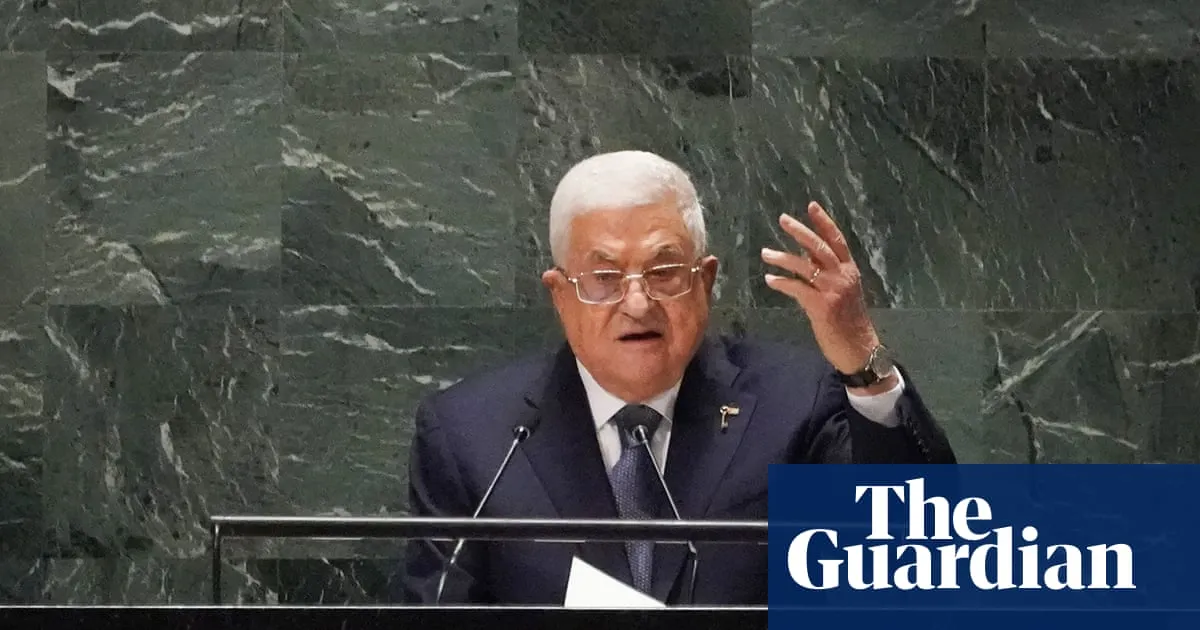
The recent actions taken by the United States government have sparked significant controversy as the State Department announced the denial and revocation of visas for members of the Palestine Liberation Organization (PLO) and the Palestinian Authority (PA) ahead of the upcoming UN General Assembly meeting in September. This decision marks a continuation of the Trump administration's policy, which emphasizes accountability for both the PLO and PA due to their perceived failures in contributing to peace efforts.
In a statement released on Friday, the State Department articulated that it is in the nation's security interests to hold the PLO and PA accountable for their lack of compliance with commitments and for actions that undermine peace prospects. This new measure further aligns the Trump administration with Israel's right-wing government, which has consistently opposed the establishment of a Palestinian state.
Israeli officials have drawn parallels between the PA, a primarily secular body that governs parts of the occupied West Bank, and its rival, Hamas, an Islamist group. The State Department accused the Palestinians of engaging in "lawfare," a term popularized by Trump, for raising grievances against Israel before the International Criminal Court and the International Court of Justice. The US has called on the PA to abandon its attempts to achieve unilateral recognition of what it describes as a "conjectural Palestinian state."
The Israeli Foreign Minister, Gideon Sa’ar, expressed gratitude to the Trump administration for this "bold step," reinforcing Israel's position. Meanwhile, Mahmoud Abbas, the president of the Palestinian Authority, who had intended to address the UN General Assembly, now faces restrictions due to this US policy. The PA's ambassador to the UN, Riyad Mansour, stated that they are seeking clarity on the implications of this new measure and how it affects their delegation.
Stéphane Dujarric, a spokesperson for the UN, underscored the importance of ensuring representation for all states, including the Palestinians, at the upcoming summit. He expressed hope that the situation would be resolved in time for the assembly.
The US justification for the visa restrictions echoed sentiments often voiced by Israeli officials, stating that the PLO and PA must unequivocally reject terrorism and incitement, especially in light of recent violent events. The PLO, established in 1964, serves as an umbrella for Palestinian factions and was recognized a decade later as the sole political representative of the Palestinian people. The PA, formed nearly 20 years after the PLO, was intended to provide a framework for a potential Palestinian state.
Internationally, Arab nations, along with countries like the UK, Australia, Canada, and France, are considering recognizing a Palestinian state at the upcoming UN General Assembly, contingent on specific conditions. This move has generated outrage in Israel, which has firmly rejected any role for the PA in Gaza, arguing that such recognition would reward terrorism.
The Israeli government, led by Prime Minister Benjamin Netanyahu, faces mounting pressure to cease military operations in Gaza. Despite this, Netanyahu ordered an escalation of military actions aimed at seizing control of Gaza City, a region devastated by ongoing conflict. The humanitarian situation has deteriorated significantly, with the UN declaring a famine in Gaza, attributing it to "systematic obstruction" by Israel regarding humanitarian aid.
As of now, the Israeli offensive has resulted in the deaths of approximately 63,000 people, primarily civilians, and has displaced a vast majority of the population. Avichay Adraee, a spokesperson for the Israeli military, confirmed that operations are underway around Gaza City, emphasizing the intensity of the assault.
In light of the US's role as the host for the UN in New York, it typically adheres to regulations that allow officials attending the General Assembly to obtain visas. However, the State Department claims compliance with these regulations by permitting the Palestinian mission to participate. Historically, there have been instances where the US has denied visas to foreign leaders, often in response to human rights concerns, although such appeals are rarely granted.
In a notable historical moment, the General Assembly convened in Geneva in 1988, allowing then-PLO leader Yasser Arafat to address the assembly after the US refused him entry into New York. The current situation echoes this past tension, highlighting the complexities of international diplomacy surrounding the Israeli-Palestinian conflict.
As the UN General Assembly approaches, the implications of these visa denials and the ongoing conflict in Gaza remain critical issues that will likely shape discussions and international relations in the coming weeks.